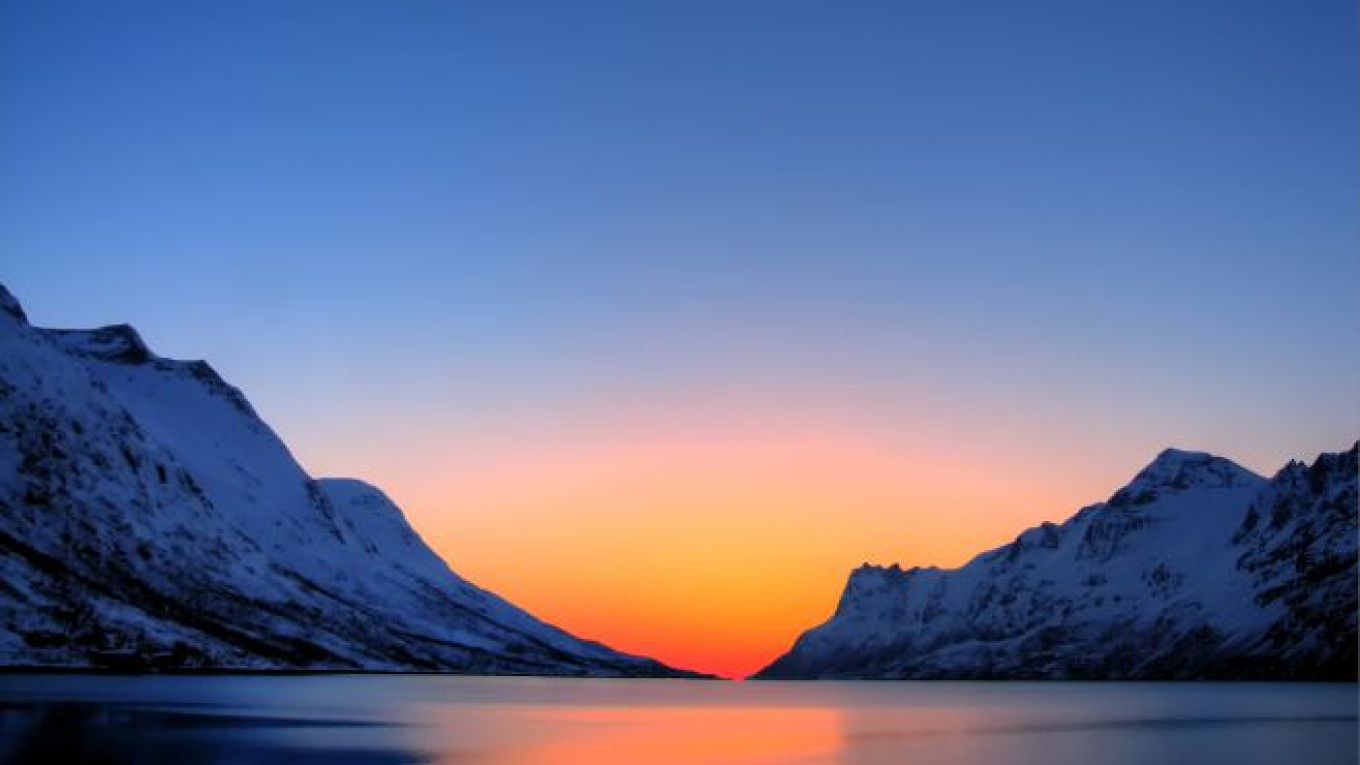Last year saw Putin's Russia cement itself as an increasingly assertive international power. Russia's annexation of Crimea and its sustained aggression toward Ukraine resulted in an array of Western sanctions.
Oil prices slid and a wounded Russia entered 2015 in economic crisis. For now, it is difficult to predict what, if any, effect these events will have on Russia's Arctic strategy. It is, however, crucial to safeguard the Arctic from increasing tensions between Russia and the West.
Sanctions are not solely responsible for Russia's current economic crisis. Most of the responsibility sits squarely with the 2014 oil price dive. The oil dive exposed Russia's continued failure to diversify its economy away from an over-reliance on windfalls from oil and natural gas exports.
Russia's crisis is compounded by a system riddled with corruption. Despite the bleak outlook, Putin maintains high approval ratings, evidently the result of a population resilient to economic hardship inculcated by Kremlin propaganda.
Meanwhile, U.S. sanctions on Arctic joint venture exploration have slowed Russia's Arctic production schedule. The Kremlin's claims that Russia can go it alone in the Arctic is deceptive — in reality Russia lacks both the cash and technology for sole operation.
The Arctic is not a short-term issue. It's still a long way from the top of the international agenda, attracting bursts of "new Cold War" rhetoric from time to time when a flag is planted.
Russia did just that in 2007, planting its flag on the Arctic seabed. For many that was a symbolic starting point for the Arctic scramble. For Russia, the Arctic represents a conduit for international prestige and perhaps more significantly — international relevance.
It is vital to understand the central drivers of Russia's Arctic ambitions, it is not simply a quest to expand Russian territory. Russian Arctic strategy is driven largely by normative factors such as the necessity to secure its vast Arctic border.
In fact, the Arctic represents a blueprint for U.S. engagement and cooperation with Russia. It is crucial the Arctic is safeguarded from souring U.S.-Russian relations. Both countries must hone in on areas of mutual interest in the Arctic.
The U.S. must engage Russia as an equal Arctic power and push for partnership. As the U.S. takes the helm of the Arctic Council — a high-level intergovernmental forum that addresses issues faced by the Arctic governments — a key objective must be to keep the window for cooperation with Russia open.
Potential conflicts are stirring as all five Arctic rim powers gather the scientific evidence to back their individual territorial claims — most of which are overlapping. Allowing existing U.S.-Russian tensions over Ukraine to spill into the Arctic arena will further isolate Russia.
During its 2015 Arctic Council chairmanship, the United States has the potential to develop a blueprint for cooperation with Russia and in doing so reset the reset. As the Arctic warms, perhaps the U.S.-Russian relationship will too.
Allowing U.S.-Russian relations to sour further and the failure to safeguard the Arctic from the fallout will further isolate the wounded bear. In doing so it will set the combative tone for our global Arctic future.
Elizabeth Buchanan is a Ph.D. candidate at the Center for European Studies at the Australian National University, Canberra.
A Message from The Moscow Times:
Dear readers,
We are facing unprecedented challenges. Russia's Prosecutor General's Office has designated The Moscow Times as an "undesirable" organization, criminalizing our work and putting our staff at risk of prosecution. This follows our earlier unjust labeling as a "foreign agent."
These actions are direct attempts to silence independent journalism in Russia. The authorities claim our work "discredits the decisions of the Russian leadership." We see things differently: we strive to provide accurate, unbiased reporting on Russia.
We, the journalists of The Moscow Times, refuse to be silenced. But to continue our work, we need your help.
Your support, no matter how small, makes a world of difference. If you can, please support us monthly starting from just $2. It's quick to set up, and every contribution makes a significant impact.
By supporting The Moscow Times, you're defending open, independent journalism in the face of repression. Thank you for standing with us.
Remind me later.


